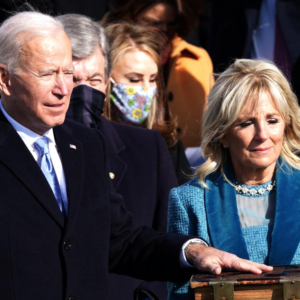AP photo
Throughout most of United States’ history, fierce battles were waged over the direction of fiscal policy and management of the national budget. Many of these contests arose during periods when government was divided politically: most notably, the combinations of Reagan-O’Neill in the 1980s and Clinton-Gingrich in the 1990s. At times, this clash of ideologies over the national budget resulted in political paralysis, consequently creating a government shutdown.
Right now, President Barack Obama and Speaker John Boehner find themselves in a similar situation as their predecessors. But given Washington’s political climate and the aversion to funding the Patient Protection and Affordable Care Act (a.k.a. Obamacare), can a compromise be forged to fund government operations, as well as the new healthcare mandate, by the end of business on September 30 to avoid a shutdown?
During the last government shutdown of 1995 and 1996, President Bill Clinton and Speaker Newt Gingrich held differences of opinion over various parts of the federal budget, including raising the debt ceiling, funding education initiatives and setting the premium rate to be paid by Medicare beneficiaries. The proposals that were introduced and passed by the Republican-led House of Representatives and United States Senate were vetoed by President Clinton. With the failure of a last-minute deal, the government ceased its non-essential operations both in November 1995 and January 1996. Although there were differences of opinion, the arts of compromise and negotiation were used to end both work stoppages. However, the outcome of these impasses was an ephemeral period of fiscal harmony; specifically, the United States’ production of consecutive balanced budgets for the remainder of the Clinton presidency.
But the situations in 1995 and 1996 were isolated incidents. For two straight years, we have witnessed consecutive “manufactured crises”: the threat to default on our nation’s debt obligations, refusals to fund government operations and the debate over the extension of middle income tax cuts. Now that you understand the pattern we have experienced recently, you must be asking yourself these questions: why are we witnessing this again and why are we are on the verge of government shutdown?
The political conditions this country faces in 2013 are not the same we encountered in 1995. This country faces a more polarized political climate – a climate that is not as conducive to employing the arts of compromise and negotiation that Clinton and Gingrich mastered so well. The Tea Party, a faction of the Republican Party that helped reclaim control of the House in the 2010 midterm elections, has fashioned extreme viewpoints from government spending levels to the kinds of investments made using taxpayer dollars. On the opposite side, President Obama, saddled with stagnant economic growth, has sought to increase investment in areas including education and job training, with the objective of equipping workers with the skills necessary to obtain a job.
But what was described above does not paint the entire picture. The main driver for this latest fiscal battle is over the funding and implementation of Obamacare. One of the reasons why the Tea Party ascended to power between 2009 and 2010 was their opposition to the creation of this government program, declaring it a national takeover of healthcare and an economic inhibiting measure. With health insurance exchanges ready to launch on October 1, lawmakers, like Senator Ted Cruz of Texas, have vowed to prevent Obamacare’s implementation by tying the defunding of this initiative to a continuing resolution to fund government operations. While this measure has passed the Republican-controlled House of Representatives, the chances of this legislation passing the Democratic-controlled Senate is next to none.
Given this situation, what will happen between now and October 1? To me, this is a one word answer: nothing. The intransigence shown by the Tea Party and the firm belief held by Congressional Democrats and President Obama to preserve Obamacare will not lead to a resolution before September 30. The Senate has enough Democratic votes to remove language that will defund Obamacare; but this “cleansed” version will not pass the House of Representatives, nor can we expect a conference resolution between both chambers. With public opinion split on the implementation of Obamacare and the divisiveness in Washington, what miracle can we expect before October 1?
Should a shutdown occur, all we can expect is another inflicted wound on our country’s fabric. Particularly, we would inflict a wound on our fragile economic recovery. We all must acknowledge that our economy is not at a point where we would like it to be: overall growth is stagnant, unemployment remains high and worker wages and hours are barely moving. A shutdown would layoff non-essential employees and delay payment of social benefits, resulting in a reduction of purchasing power. Regardless of a shutdown’s length, the impact to our economy will be felt, and, in my opinion, it would be wrong to do.
Obama and Boehner could learn something from Clinton and Gingrich on settling their present differences. Whatever happens with the shutdown, they better start studying up on compromise and negotiation because another fiscal crisis – raising the nation’s debt ceiling – is looming around the corner.





